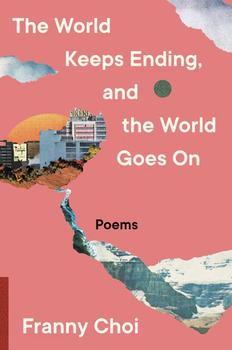Summary | Excerpt | Reviews | Beyond the book | Read-Alikes | Genres & Themes | Author Bio

Attempting to distill Elaine Castillo's debut novel America is Not the Heart into a neat synopsis is a little like trying to explain the plots of several books all at the same time. Yes, this is first and foremost a tale of new beginnings in a foreign land. But it is also a document of a nation's political upheaval that spans several decades. America is Not the Heart is a bisexual romance, a story of survival, a celebration of Filipino culture, and more besides. Thankfully Castillo has expertly managed to tie these disparate threads into a cohesive, compelling whole anchored by protagonist Geronima de Vera, a thirty-something-year-old woman escaping traumas experienced in the Philippines.
As a daughter of a well-to-do family, Geronima grew up sheltered from the oppressive realities of martial law that terrorized thousands of Filipinos in the 1970s and 80s. During these years, communist activists gained increased popularity among the Filipino peasantry. Fearing he would be overthrown, the then elected president, Ferdinand Marcos, established an authoritarian regime to maintain full control of government and suppress the democratic process. The president also utilized the military to silence protesters and stifle any opposition to his rule.
Upon reaching university, Geronima comes to realize that members of her own family, including her parents, are ardent Marcos supporters that her new classmates and their families have suffered under. Unable to reconcile with this truth, Geronima quits medical school to join the New People's Army (see Beyond the Book), a communist rebellion that attempted to bring down Marcos' regime and set up a new political state led by the working class.
From here on, Geronima endures a decade of unthinkable hardships and by the time she surfaces back in her hometown, both physically and emotionally broken, her parents effectively disown this daughter who fought so hard to bring their politics to an end.
Having burned all bridges in the Philippines, Geronima is left with one option: to start anew with family ties in America. Geronima is invited to live with her uncle Pol and her aunt Paz in the San Francisco Bay Area, where she spends her days babysitting young daughter Roni, who nicknames her new guardian, Hero. As she acquaints herself with her new home, Hero forms friendships among the thriving Filipino diaspora, chiefly with Rosalyn, a headstrong, no-nonsense makeup artist. Even though Hero tries to bury her past, she soon faces a harsh wake-up call. While she may be thousands of miles away from home, her trauma continues to bubble just under the surface, threatening to isolate her from any meaningful relationships.
The main narrative thrust of the novel traces Hero's day-to-day life in America. By taking care of her cousin Roni, she comes into contact with other Filipinos, from neighborhood witch doctors to turo-turo (or steam-table) restaurateurs, who each form yet another tiny piece in the puzzle of what it means to be Filipino in America. The full horrific details of Hero's backstory are teased out piecemeal over the course of the novel, as the heroine herself becomes more comfortable with sharing her story. Some readers may find the continuous back and forth between past and present somewhat tiresome, especially as these sections can often read like very different books. Yet these stylistic dichotomies only highlight how present-day Hero is only a shell of the person she was in her radicalized youth.
America Is Not the Heart also details Pol and Paz's past, their unlikely romance, and the reasons they emigrated. And through cousin Roni, Castillo explores how a young naturalized American forms an identity informed by both U.S. culture and Filipino heritage. These three generations of Filipinos living under one roof – middle-aged Pol and Paz, Hero in her early thirties, and eight-year-old Roni – provide a holistic insight into the Filipino experience in America.
In order to draw the reader further into the spirit of its characters, Castillo infuses the dialog with untranslated fragments of various Filipino dialects such as Tagalog, Ilocano and Pangasinan, which are for the most part easily understood in context of the conversations. By the end of this sprawling, inclusive novel, readers will truly feel they have been offered a rare glimpse into a people, history and culture too often marginalized.
![]() This review was originally published in The BookBrowse Review in May 2018, and has been updated for the
April 2019 edition.
Click here to go to this issue.
This review was originally published in The BookBrowse Review in May 2018, and has been updated for the
April 2019 edition.
Click here to go to this issue.

If you liked America Is Not the Heart, try these:

by Susan Choi
Published 2025
A novel tracing a father's disappearance across time, nations, and memory, from the author of Trust Exercise.

The World Keeps Ending, and the World Goes On
by Franny Choi
Published 2023
From acclaimed poet Franny Choi comes a poetry collection for the ends of worlds—past, present, and future. Choi's third book features poems about historical and impending apocalypses, alongside musings on our responsibilities to each other and visions for our collective survival.
Your guide toexceptional books
BookBrowse seeks out and recommends the best in contemporary fiction and nonfiction—books that not only engage and entertain but also deepen our understanding of ourselves and the world around us.